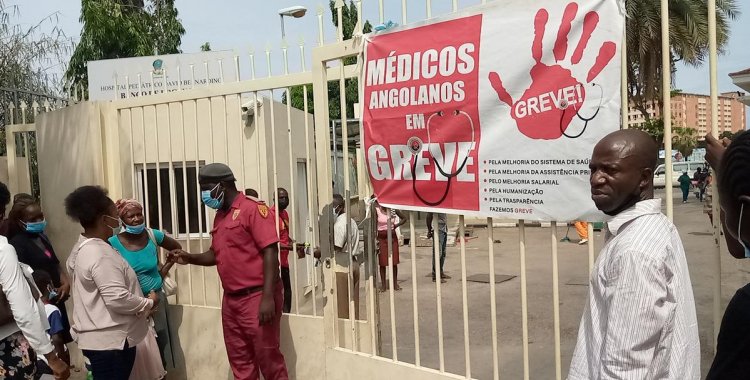"The most important thing is a lot of permanent dialogue between the Ministry, socio-professional organizations and unions and, clearly, giving the status of the sector without taboos and that is what we have been doing", she assured.
The government official spoke to Lusa on the sidelines of her participation in the Euro-Africa Forum, an initiative by the Portuguese Diaspora Council association, which took place on Monday and Tuesday in Carcavelos, on the outskirts of Lisbon.
"There were issues related to salaries that were exceeded in the negotiations we carried out and what we want is to have these entities, the unions, the socio-professional organizations, as partners of the Ministry of Health and what we are going to do is continue the permanent dialogue", she reiterated.
Sílvia Lutucuta considered that "there are no perfect systems anywhere in the world".
"We will continue to work and I believe that, with dialogue, we will not have difficult moments", she declared, responding to the question whether Angolans, and health professionals, could expect a less conflictive period than what happened recently.
In recent months, doctors and nurses have begun strikes demanding salary updates, an end to delays in salary payments and a new policy for the national health system, a process that Sílvia Lutucuta said is already part of the past.
"There were, in fact, some delays in payments. They are public domain. But these delays are already being recovered. We want to reassure our union president that in reality payments are being made gradually and prioritizing the sector of health. There is no longer any delay and assistance continues to be provided", she highlighted.
The government official was responding to complaints made on 7 July, in statements to Lusa, in Luanda, by Adriano Manuel, president of the National Union of Angolan Doctors (Sinmea), who accused the Government of not financing the hospitals, which led to an increase in hospital deaths due to lack of medicines, reagents and diagnostic means.
According to the doctor, many hospital institutions in the country have laboratories operating at reduced capacity due to a lack of reagents, examination means, even to carry out a blood count and biochemistry tests, a situation made worse by the lack of medicines.
For the president of Sinmea, the current "precariousness" of the health system in Angola results from the large investments that the Government makes in the secondary and tertiary system, to the detriment of prevention at primary level.
He also considered that the main challenges of access to healthcare in the country remain the same as they have been for years, namely the lack of organization of the healthcare system. "Until we organize the health system we will continue to have serious problems," he said.







